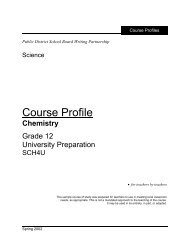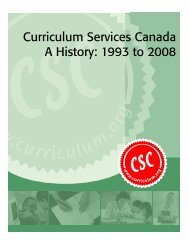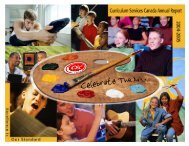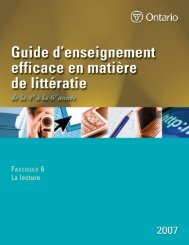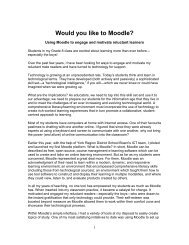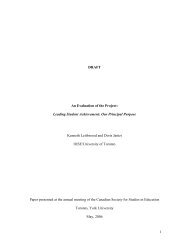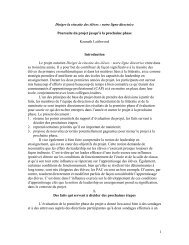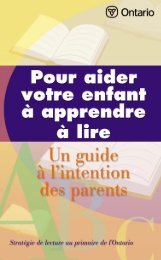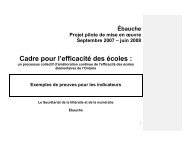Course Profile - Curriculum Services Canada
Course Profile - Curriculum Services Canada
Course Profile - Curriculum Services Canada
You also want an ePaper? Increase the reach of your titles
YUMPU automatically turns print PDFs into web optimized ePapers that Google loves.
Specific Expectations<br />
Using Reasoning Skills<br />
IS1.01 – correctly use the terminology of philosophical argumentation (e.g., logical validity, begging the<br />
question, vagueness, argument from authority);<br />
IS1.02 – define terms central to philosophical discussions of each of the big questions (e.g., personal<br />
identity, nihilism, moral realism, utilitarianism, scepticism, aesthetic subjectivism);<br />
IS1.03 – identify the main conclusions of some philosophical positions regarding one or more of the big<br />
questions, and the arguments used to support them;<br />
IS1.04 – illustrate common fallacies in reasoning (e.g., using ambiguous language to reach a conclusion,<br />
dismissing an argument because of who advanced it instead of evaluating its intrinsic merits).<br />
Using Research Skills<br />
IS2.01 – find overviews of a variety of philosophical concepts and theories by accessing such sources as<br />
encyclopaedias and surveys, and report on their findings;<br />
IS2.02 – compile information related to the big questions of philosophy, using the Internet.<br />
Using Communication Skills<br />
IS3.01 – discuss their own views in philosophical exchanges in class with others;<br />
IS3.02 – clearly explain their views and display their use of philosophical reasoning skills in short<br />
written papers, using accepted forms of documentation as required.<br />
Page 19<br />
• Philosophy: The Big Questions - Open



